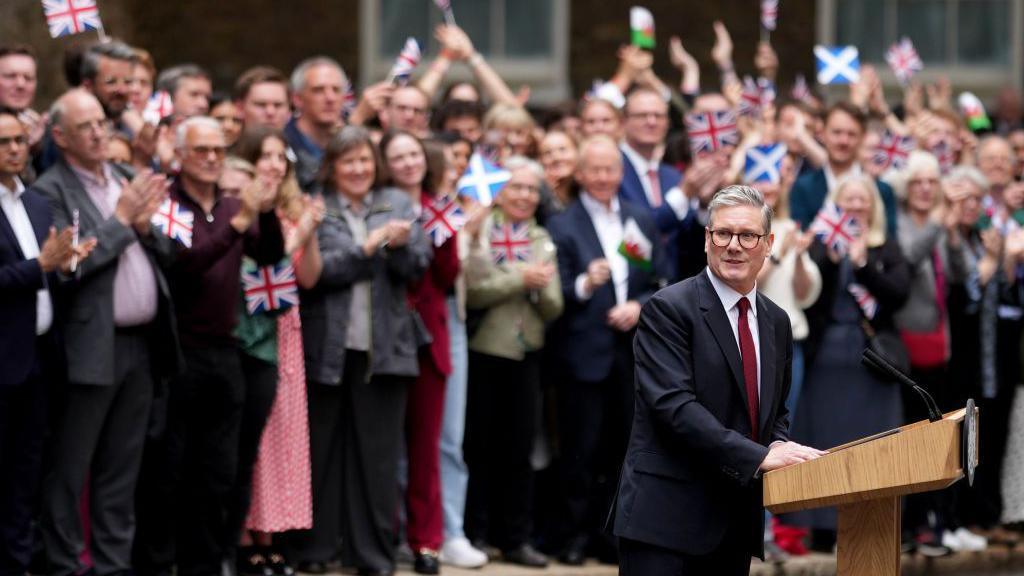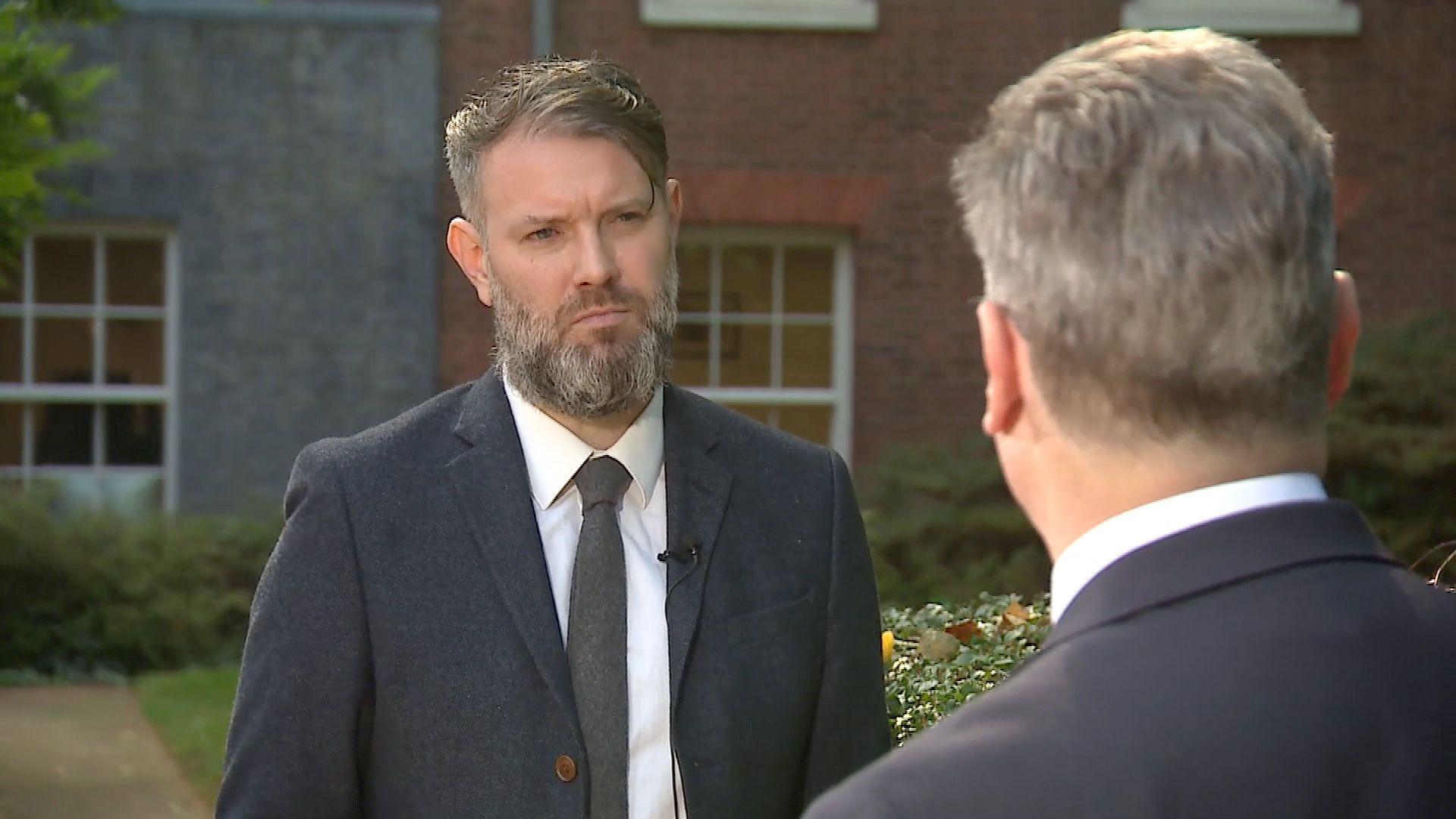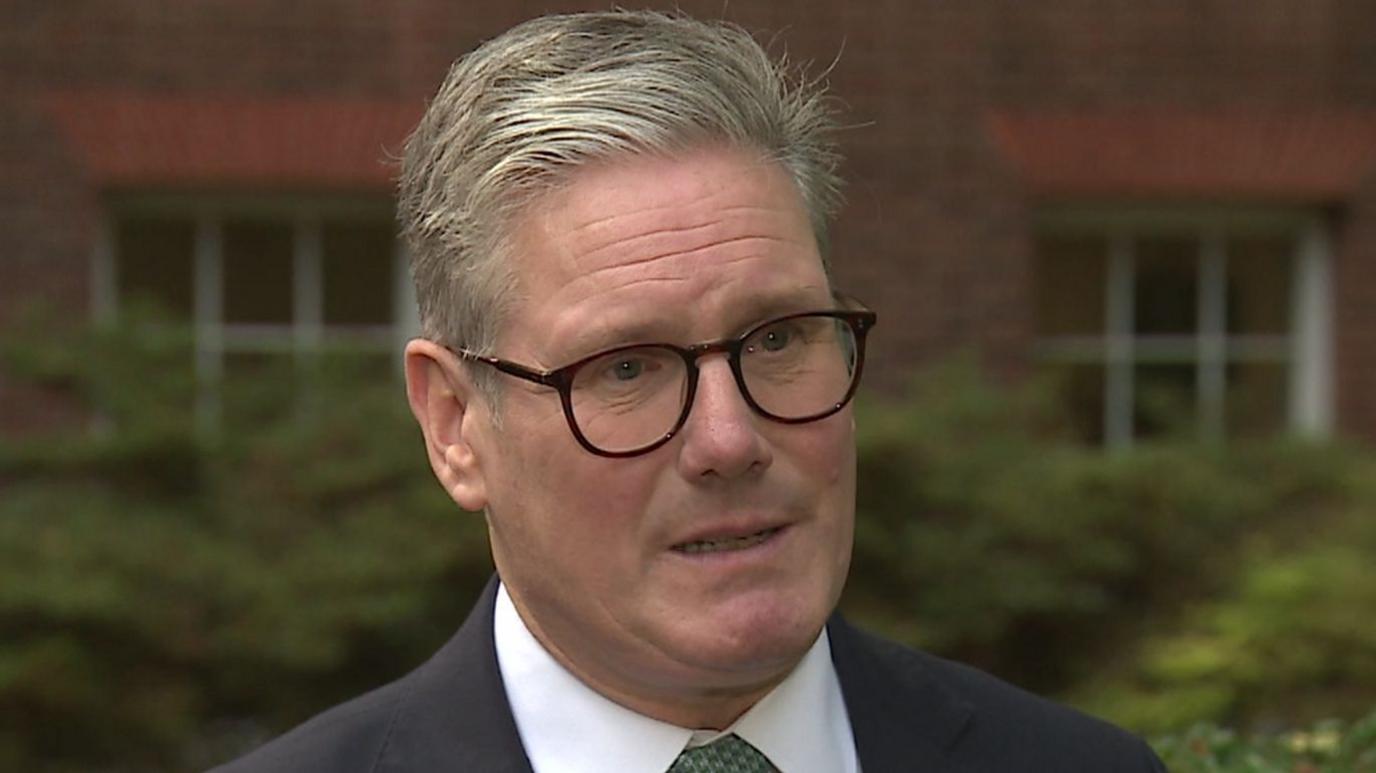'I want to get rid of North-South divide' says PM
Sir Keir Starmer speaks to our political editor outside Downing Street
- Published
Sir Keir Starmer has been prime minister since a resounding election win in July.
Thursday was the first time your local BBC political editor had the opportunity to put questions to him in that new role.
BBC Yorkshire's James Vincent spoke to the PM at 10 Downing Street. Here's his analysis of the interview.
I’ve spent the last few weeks behind a steering wheel traversing the North, trying to get to as many new MPs as possible.
And there are a lot - 20 new ones to say hello to in Yorkshire alone.
New MPs that will have spent the summer going through the three main emotions of being elected:
Joy – they are now a Labour MP in a Labour government.
Surprise – that the job starts immediately, and you have got to be an expert in employment law, set up your own office and find somewhere to live in London.
Apprehension – as the size of the job sinks in. What do Labour need to do to be a success in the North and keep those voters they picked up July?

Sir Keir addresses crowds after his party's election win in July
I’ve seen a lot of new faces and been to a lot of different postcodes.
But this week I found myself round the back of the most famous address in the country, in front of someone else who’s got a brand new job.
So what challenges will Sir Keir Starmer face and what will he have to sort to convince people in the North they made the right choice?
Can he fix the North-South divide?
A one-word answer from the PM on this one. "Yes."
I asked him whether he was going to be the prime minister that would erase the divide.
"I feel very strongly about this. That’s why when I say that I want economic growth, I’ve been equally clear that I want to see that everywhere."
That divide is most starkly illustrated by life expectancy. We have less life because we are living it in the North.
It’s the same for how long we get to live without long-term illness.
Men in Barnsley on average live a healthy life until they are 55. In the PM’s North London constituency it’s 63 – and reaches up to 70 in parts of the South East.
A public health official told me recently it’s not fair.
"That’s why I want to devolve power. That’s why I want to put money power decision-making in local hands," Sir Keir says.
"I’m absolutely determined that we will end that divide. That’s what we’re committing to."

James Vincent talks to Prime Minister Sir Keir Starmer
The key word of the election campaign - "Change" - will be front and centre during the Labour Conference next week.
It will be plastered over mugs, T-shirts and stickers.
But the PM's term has started with many talking about cuts – particularly the winter fuel payment.
“In 11 weeks we’ve already started many of the steps towards change that we’ve promised. I know people are desperate for that change.
“The whole point of the exercise is to make people better off. To do that we’ve got to stabilise the economy. We inherited real mess.”
'Focused' on change
Stood in the same back yard that launched the 2010 coalition and austerity, I pressed him on how long he can blame the previous government.
“I think it’s right that we’re honest about the problem we’ve inherited.
"But people are entitled to say ‘are you focused on the change?’ Yes we are. It’ll take time.
“It’s a bit like building or rebuilding a house, you’ve got to fix the foundations.
"Make sure it’s stable - don’t be tempted to paint over the damp because it will still come back. Do it properly.
"But I know I’ll be judged, quite rightly, by your viewers at the end of this parliamentary term on whether I have made them feel better off, whether we’ve fixed the health service, whether they feel their energy bills have gone down, whether they feel safe in their communities and whether their young people can go as far as their talents will take them."
Listen to highlights from West Yorkshire on BBC Sounds, catch up with the latest episode of Look North or tell us a story you think we should be covering here, external.
Related topics
- Published19 September 2024
